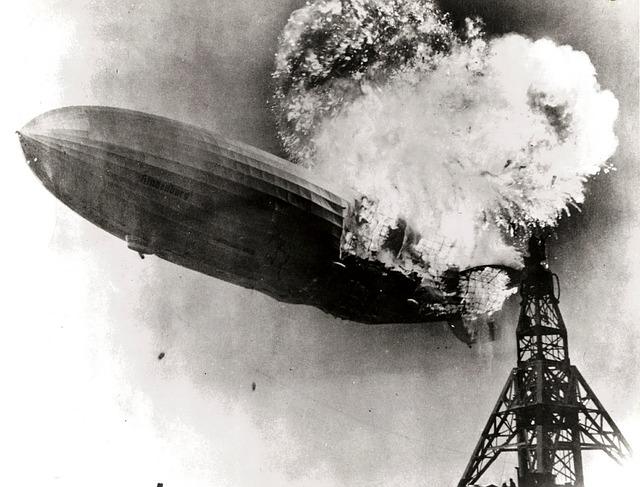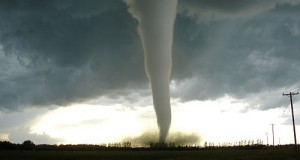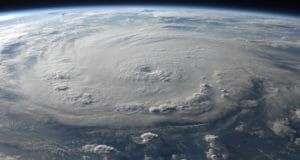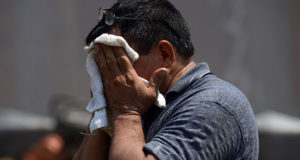If you believe in the value of being ready for a disaster, then you probably understand that the time to prepare is now.
Since the type of disaster or crisis may vary, it can be difficult to prioritize exactly where you should be putting your efforts. Below are five things you can do to better prepare yourself for a variety of challenges.
1. Get fit. This is far from easy, I know. Like most people, I prefer to eat more food, choose less healthy options, and engage in less activity than is optimal for my health.
But it is important not to lose sight of the future. The reason for preparedness is to increase the chance of survival, and to maximize the quality of life after catastrophe happens.
Consider how much more you’ll be able to contribute to the well-being of your family and community if you are capable and strong. If you are morbidly obese or frail and don’t have the capacity for endurance, you will not be able to play as big a part in protecting yourself as you would like to.
It is possible you could even place loved ones in additional danger. If you are unhealthy and go knocking on a dear one’s door when the world is in chaos, they are likely to take you in despite what it will cost them.
Get Free Backup Electricity — That Works Even During Blackouts!
Better for you to pay the price now. And when you think about it, it’s hardly much of a price. By eating right, exercising, taking steps to lower your blood pressure and blood sugar, and building cardiac strength, you will most likely feel much better and be glad you made the lifestyle changes.
2. Get out of debt. Nobody knows for sure what will happen. Will the economy collapse? Will Wall Street crash? Will the value of the dollar suddenly plummet due to offshore circumstances beyond our control?
Some permutations of apocalyptic predictions say that lending institutions will cease to exist. Loans and mortgages will implode, leaving homeowners and borrowers to live by the adage “possession is nine-tenths of the law.”
But there are no guarantees it will work that way. It is possible there will still be enough enforcement in place to repossess your belongings and put you out of your home. Even barring anything being hauled off by creditors, nobody needs the added stress of financial ruin in times of emergency. It is better to own free and clear as much as you can.
Another fact to consider is that debt is costly due to interest costs. The less of your income that is committed to monthly payments, the more money you can devote to investing in preparedness.
3. Get skills. Telling yourself that you can easily take up gardening or learn to use a cross-cut saw for firewood when the time comes is folly. Investing in supplies and equipment ahead of time is not enough.
Saying you will learn to use your stuff after disaster strikes is like saying you will learn to drive your car after you need to rush someone to the hospital. It might be possible, but it is certainly not the best way.
If you think your post-apocalyptic life could include hunting animals, living in the forest, raising livestock, sharpshooting, collecting mushrooms, canning vegetables, starting fires without matches, or living on the move – then get good at it while you can afford to make mistakes.
4. Get organized. None of your preps will do you any good if you can’t locate them easily and access them when you need them.
If disaster happens suddenly, those of us trying to survive will have to react with speed and confidence. There may not be time to wonder where you stashed those batteries or whether the latest 300 pounds of livestock grain ever made it into the barn.
In addition, it is harder to know for sure what you have on hand without organization. Lists and specific routines help, as does making sure there is a place for everything and everything is in its place.
5. Get real. Do not worry about zombies. Instead, concern yourself with laws that don’t make sense or with politicians who don’t have America’s best interests at heart. Worry about our nation’s enemies, natural disasters, the state of the planet’s resources and the economy.
You do not want to become so consumed with having a massive stockpile of every kind of weapon and ammunition known to humankind that you neglect to gain real independence. Having the ability to take care of yourself in a wide variety of situations, and knowing you will not perish while waiting to be rescued, is far more worthwhile.
Rather than holding mandatory all-day weekend sessions teaching your kids how to pick a lock using a secret pocket gadget cleverly disguised as a credit card, try teaching them potentially universal skills. Skills like finding their way without using GPS, preparing vegetables for cooking, and steering clear of poison ivy can be far more useful.
There has never been a time when the Latin phrase “carpe diem” – meaning “seize the day” – has been more important. By focusing on the above, you can improve your chances of surviving when disaster strikes.
What would you add to our list? Share your ideas in the section below:
 Off The Grid News Better Ideas For Off The Grid Living
Off The Grid News Better Ideas For Off The Grid Living





